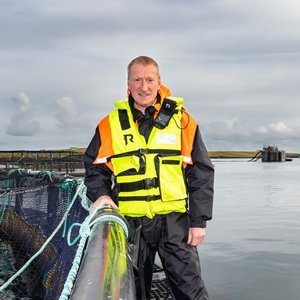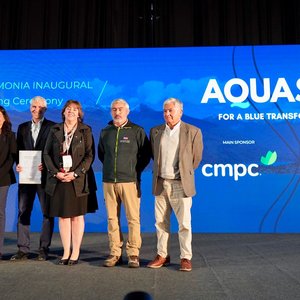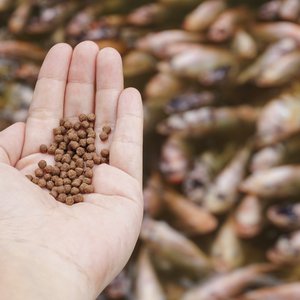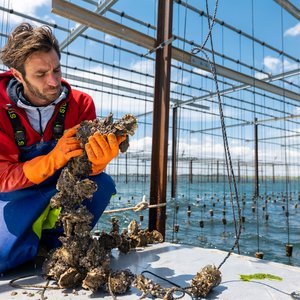Peptides previously isolated from hybrid striped bass may be able to control certain viral diseases in fish and humans, suggests new research published in the journal Virology.
“The peptides were highly inhibitory to channel catfish virus, as well as certain amphibian viruses,” said Ed Noga, a co-investigator and North Carolina Sea Grant researcher. The study was led by Greg Chinchar of the University of Mississippi Medical Center.
The peptide antibiotics or “piscidins,” a name derived from pisces, the Latin word for fish, originally were isolated from mast cells—found in the immune systems of fish and other vertebrates, including humans.
“The results suggest that piscidins may be an important defense for fish against viral infections, which are among the most serious diseases in aquaculture,” added Noga. “They also have the potential to fight viral infections in humans, particularly the herpes viruses.”
Earlier work by other researchers found that viruses can be sensitive to other types of antimicrobial peptides besides piscidins, according to Noga. With the spread of emerging infectious diseases and the growing problem of antibiotic resistance, the search for effective treatments has taken on greater urgency.
In a previous North Carolina Sea Grant study, researchers found that piscidins possessed potent broad-spectrum antibacterial activity, including the ability to fight fish and human pathogens resistant to other antibiotics.
This was the first time that researchers had isolated a peptide antibiotic from mast cells of any animals. “The next step is to determine the specific role that piscidins play in defending fish against viral infections, as well as finding out if piscidins can effectively treat viral disease in an animal model,” Noga said.
The study was funded by North Carolina Sea Grant, the National Science Foundation, and the U.S. Department of Agriculture.
For more information contact: Ed Noga, Professor of Veterinary Medicine, North Carolina State University: ed_noga@ncsu.edu; Greg Chinchar, Department of Microbiology, University of Mississippi Medical Center:vchinchar@microbio.umsmed.edu; or Ann Green, North Carolina Sea Grant Communicator: agcarver@unity.ncsu.edu.










